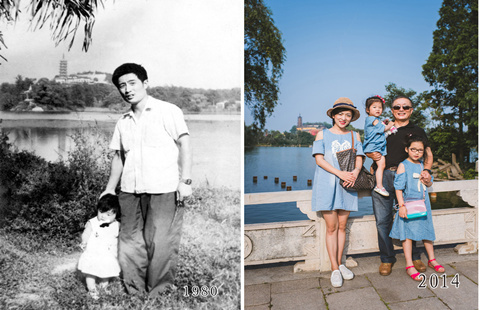China's war against cancer
Updated: 2015-02-09 14:42
(Xinhua)
|
||||||||
BEIJING - A five-storey gray building within the southeast corner of Beijing's Second Ring Road is one of the city's burgeoning "cancer hotels".
Each room has about 10 square meters, and one of these windowless rooms accommodates Sun Yu and her husband for a daily rent of 40 yuan (about $6.4).
Sun, 64, has ovarian cancer. She and her husband have come often to the Chinese Academy of Medical Sciences Tumor Hospital from their village in north China's Hebei Province since 2012. Each time they travel 250 kilometers to Beijing for months of treatment, living in one of the "cancer hotels", which are cheap and close to the hospitals.
Sun was diagnosed in a provincial hospital in Hebei in 2012, and was told her condition was too advanced for surgery there. "They told me I only had two years at most. My son said a hospital in Beijing was my last hope," she says, weeping.
She is one of about 700 patients, most of them from outside Beijing, who queue every week at the hospital, reputed to be one of China's leading cancer treatment centers. But with the limited number of hospital beds, most of them live in the cancer hotels.
China's cancer morbidity and mortality rates are set to keep rising over the next 20 years, says Dai Min, a researcher at the China National Cancer Center.
In 2012, more than 3 million Chinese had cancer, accounting for a fifth of the world total; while cancer deaths reached 2.2 million, accounting for a quarter of the total.
A forecast by the International Agency on Research for Cancer said that, without effective measures, the incidence and death toll in China will reach 4 million and 3 million respectively in 2020, then 5 million and 3.5 million in 2030.
Cancer has no regard for wealth, age or social standing. Last month, a famous Chinese singer, Yao Beina, died of breast cancer at the age of 33.
China has an average cancer morbidity rate, but a death rate higher than world average. Tumor Hospital of Peking University director Ji Jiafu says one reason is the difference between common types of cancer in China and the rest of the world.
In Europe and North America, prostate and breast cancers - the most common cancers - have survival rates of over 80 percent, but in China, the most common cancers of the lungs and liver have survival rates under 30 percent.
China's high death rate could be attributed to the high proportion of patients in terminal stages, says Cheng Shujun, an academician at the Chinese Academy of Engineering. For example, over 80 percent of lung cancer patients in Beijing are in the terminal stages, while in Europe and North America the proportion is about 50 percent.
Most Viewed
Editor's Picks

|

|

|

|

|

|
Today's Top News
Venezuela's economic woes to continue: Panel
China seeks compensation from Mexico after high-speed project suspended
China to build two nuclear power plants in Argentina
Xi plans to make state visit to US
Trade numbers take big hit in January
Search continues for 3 missing in TransAsia crash
Beautiful girl loses battle with cancer
Three more H7N9 cases reported in China's Guangdong
US Weekly

|

|







